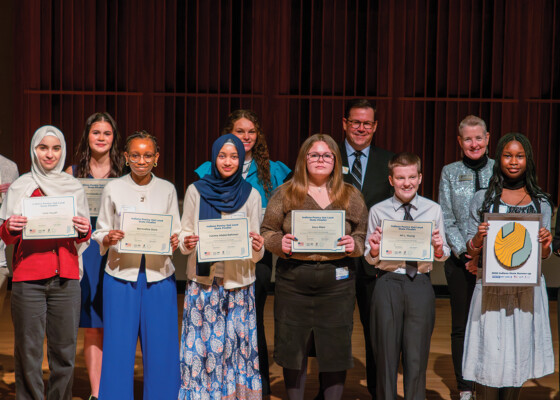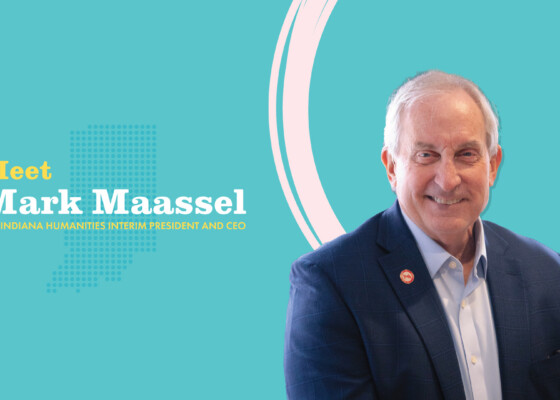The Humanities
July 27, 2015Ah, the Humanities! That mysterious word that so few people use. We, the state humanities councils, have been trying to find a good definition for “the humanities” since our founding…
Ah, the Humanities! That mysterious word that so few people use. We, the state humanities councils, have been trying to find a good definition for “the humanities” since our founding days.
One could explain the humanities as more-or-less equivalent to English/Language Arts, Social Studies and World Languages (in K-12 speak) or as the liberal arts disciplines of philosophy, literature, history and related fields (in higher education).
Here is yet another try at defining the humanities. Consider that there is a reason why Indiana Humanities’ tagline is “think” followed by “read” and “talk.” It is because the humanities are about human thought, imagination and experience. These elements make up the essence of the humanities, which can then be captured in text and discussed in a forum.
About that word, forum – “the marketplace or public square of an ancient Roman city, the center of judicial and business affairs and a place of assembly for the people.” Or “an assembly, meeting place, television program, etc., for the discussion of questions of public interest” (Dictionary.com). How little this human activity has changed in two millennia and yet how much!
One of my own experiments in humanities programming took place in 1995. We sponsored a series of four programs that featured some of the little-known humanities disciplines: cultural anthropology, linguistics, ethnomusicology and religious studies. You would guess that few members of the general public would be interested in such topics, but actually the audiences were quite fascinated, as was I. What differences between people are a result of culture? What does sign language mean to the deaf and how does it shape their social networks? What is the origin of black gospel music? What is the perspective on religion of those who study it as an academic subject? Intriguing questions.
We have been hearing a lot these days about how the humanities are in crisis at colleges and universities, but they were in my graduate school days, too – and that was in the 1970s.
As long as human beings continue to think, read and talk, the Humanities will not cease their centuries-old work of asking questions and searching for answers. It is who we are. It is what we do. There is nothing more real.
This blog is part of a blog series, All Good Things. The series, written by Nancy Conner, will run throughout the year to reflect on topics that have been central to our work at Indiana Humanities.


